Plantation and Rural Holidays in Tamil Nadu
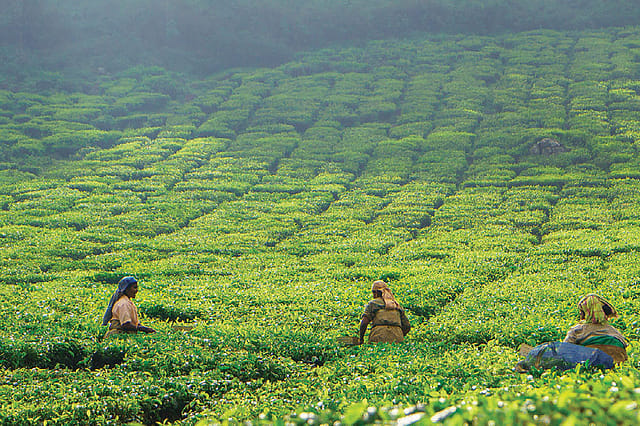
Tamil Nadu is a tourist's delight, known for its stunning built heritage, vibrant culture, warm people, tranquil beaches and delicious food. However, beyond the popular tourist attractions and the scenic coastline, there is an entire world of experiences to be had. Imagine volunteering at a farm and getting to know more about the crops and the challenges faced by farmers. Or learning the nuances of pepper cultivation. Or spending a few nights in a sprawling tea bungalow. Or learning about the art and craft traditions of a particular region. Or savouring an exotic cuisine you may not have encountered before. Or charting a new path on a nature walk. All these and many other experiences can be yours if you're willing to open up to the possibilities of farm and rural tourism. Tamil Nadu is a treasure trove when it comes to that. Many of these farm stays and experiences come without the conventional trappings of typical tourist resorts. Guests might be expected to participate in farming activities, for instance. Also, they should not expect the usual modern conveniences associated with resorts, like swimming pools and TVs or running hot water and air conditioning. This is a laidback holiday far from the world of package tours.
TEA, COFFEE AND SPICE – PLANTATION TOURISM IN TAMIL NADU
The hill tracts of Tamil Nadu, Valparai and Megamalai, the Nilgiris and so on, are home to numerous tea, coffee and spice plantations, which provide an offbeat experience to the visitor. The culture, cuisines, greenery, and vibrant traditions of these regions too are unique in themselves. The hubs for plantation tourism are hill stations like Valparai, Megamalai Ooty, Coonoor, Yercaud, Kodaikanal and so on. In many places, the erstwhile bungalows of the managers have been repurposed for tourists and offer a taste of the planter's life.
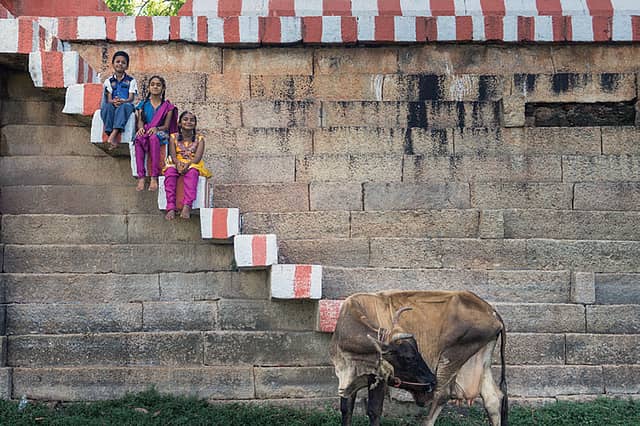
Tranquilitea in the Nilgiris provides boutique experiential holidays focussed on tea. The family-owned business offers a gourmet tea tasting experience in the Tranquilitea Tea Lounge. Besides that, you can stay at their plush properties in Ooty and Coonoor. These are: Tenerife Hill in Coonoor, which is a plantation farm stay; The Bungalow in Ooty; and The Club House, Coonoor. Each of the properties is fully laid out in teak and rosewood furniture and is a self-contained unit with a dining room, living room and a garden to ensure a luxurious stay.
The Cauvery Peak Estate in Yercaud offers the ultimate coffee experience tour on an estate that is 150 years old. There's a coffee museum here and they also provide stylish accommodation if you'd like to stay. The Highfield tea factory in Coonoor is worth a visit.
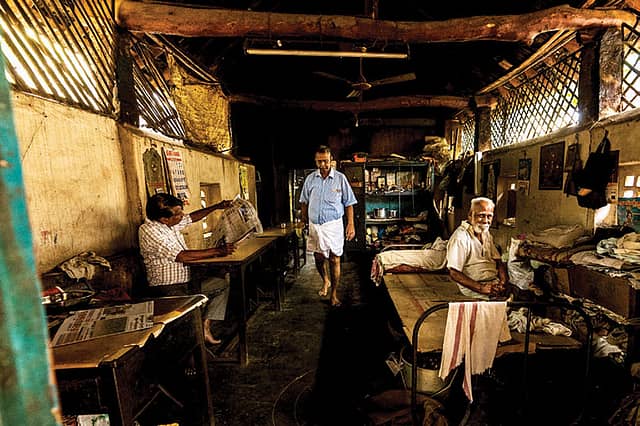
Balmaadi Estate, situated in the Nilgiris district, is part of the O'Valley group of plantations that were developed over 150 years ago by an enterprising Scotsman, John Ouchterloney. Home to the mysterious Toda tribes, it is today a hill resort of repute. At Balmaadi, they grow coffee, tea, cardamom and stevia at an elevation of 4,000-6,000 feet above sea level, the coffee growing at altitudes far above other coffees. The estate is just 50 kilometres from Ooty.
The Kodai Vel Farms in Kodaikanal is said to be the best coffee plantation in the area. For something more immersed in nature, you can look at the Dune Eco Group's Elephant Valley Camp, which is set on the grounds of a small coffee estate as well.
Valparai- It is a hill station close to Pollachi with vast areas of tea and coffee plantations amidst thick reserve forest nurturing a unique flora and fauna. There are deep forests and wildlife sanctuaries here. The drive to Valparai is through a spectacular winding forest road in between lush green tea gardens. There are soul-quenching views of streams, dams, valleys, waterfalls, tall mountains and mesmerising grass lands on the way. An eco-tourism hotspot, Valparai's picturesque grass hills are part of the Anaimalai Tiger Reserve. The nearby Sholayar Dam is one of the largest reservoirs in South India.
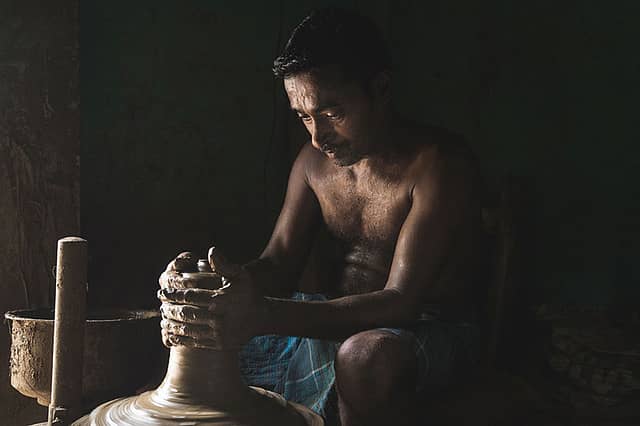
For an authentic plantation experience, you can check into the Woodbriar Valparai tea estate, which is close to the Parambikulam National Park. Woodbriar has 2,000 hectares of tea plantation and four factories at Valparai. The oldest portion of the plantation is over 125 years old. While the factories adopt the CTC process, the Injipara estate manufactures premium tea. Briar Tea Bungalows with backdrops of spectacular countryside mountain valleys, lochs and wildlife are an ideal base for a perfect holiday. All Briar tea Bungalows were built to take complete advantage of the scenic surroundings they are located in. And entering each room takes you back to the colonial era.
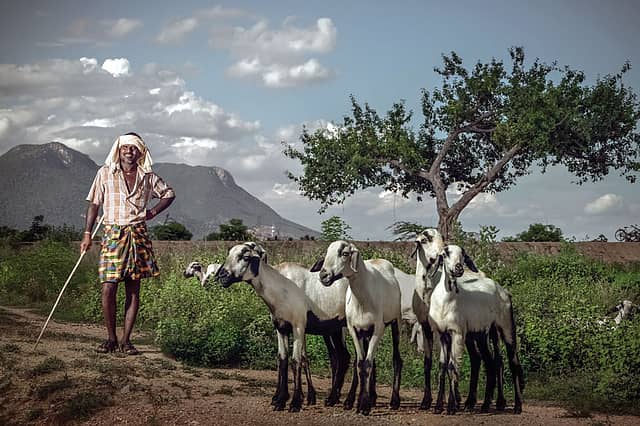
Briar Tea Bungalows offers a number of options. The Sirukundra Bungalow, which was built in 1917, has three large bedrooms, spacious bathrooms, living room, dining room and a fireplace in the bedrooms. It is tastefully furnished with antique furniture. Meanwhile, the theme at the Stanmore Garden Bungalow is plantation evolution. Set in a spacious compound, it offers a 360-degree view of the plantation and the grass hills. There are three spacious bedrooms with elegantly designed décor and fireplaces. The location also offers five single-bedroom wooden chalets overlooking the grass hills and two double-bedded wooden chalet suites overlooking the Injipara River. The 1925-built Monica Bungalow is focussed on wildlife and camping. The main bungalow has three bedrooms with fireplaces set in a well -maintained garden. There are also four tents with 220 sq ft per room and well-appointed bathrooms.
Apart from the Briar Bungalows, you can also check out the Star Tea Estate Bungalows, an eco-tourism farm stay Bungalow located in a lush green tea garden in Valparai.
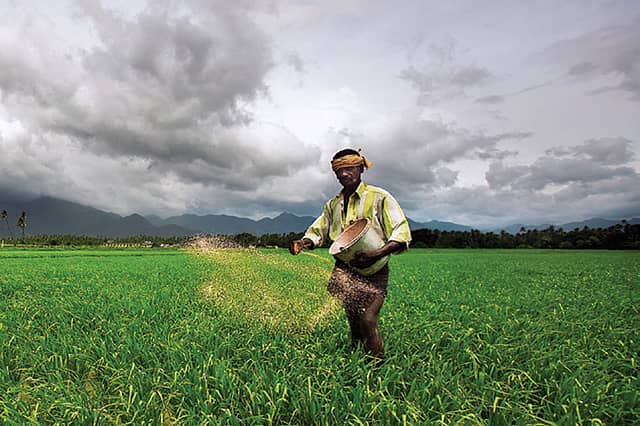
Megamalai- Another little-known natural paradise is the poetically named Megamalai in Tamil Nadu's Theni district. The untouched evergreen forests surrounding Megamalai make it a breathtaking experience. A winding dam nestling around Megamalai runs around the Briar Tea Bungalow here. While Valparai is entirely covered in tea plantations, Megamalai is many more shades of green as the gardens are interspersed with patches of evergreen forest. Also, there are water streams greeting the eye wherever you go.
Once you enter the road where the bungalows are situated you will be immediately enticed by the Cloud Mountain Bungalow. It is perfectly placed, surrounded by stupendous views. It's a perfect colonial home, still holding its heritage intact, with a goodly living room, three capacious bedrooms, a small library and an awe-inspiring sit-out. There is a functional fireplace as well.
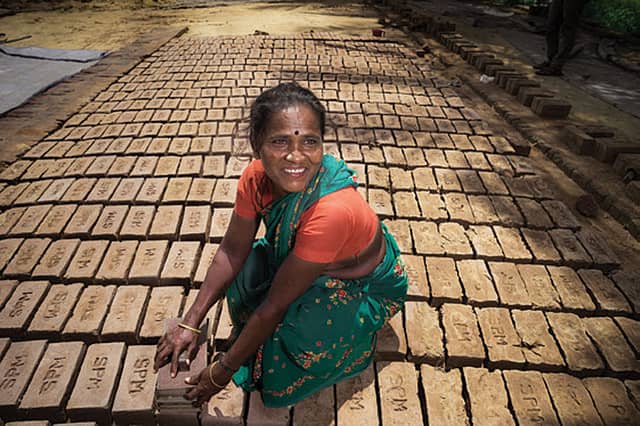
Meanwhile, the Manalar Bungalow has a dazzling 360-degree view being situated at the end of the road. This bungalow gives the vibe of a home rather than a large hotel suite but with immense sophistication.
The Kanniyakumari district is home to a number of scenic rubber plantations. You can observe the rubber tapping process here. Set on the banks of the beautiful Chittar Lake formed by the Chittar Dam, Anantya Resorts is a luxury lakeside resort here. A lush tropical retreat nestled within 1,000 acres of rubber plantations, Anantya is set where the Western Ghats give way to 'Alli Kulams' and 'Tamara Kulams' (Lily and Lotus Ponds) very close to Nagercoil. The resort organises farm visits apart from a range of other interesting activities. One of their most interesting experiences is a visit to a tribal settlement. The Kani are a small tribe of less than 12,000 people that lived in the forests of Kanniyakumari, who have their own unique language, customs and traditions. The Kanis have been relocated out of the forest to adjoining areas and the Kani youth have a strong motivation to preserve their customs and traditions. A 20-minute jeep ride from Anantya to the edge of the forest takes you to a path that then leads you through orderly rows of rubber trees, wild fern-covered hillsides, over gushing waters of the dam and into a beautiful forest where the Kani are settled.
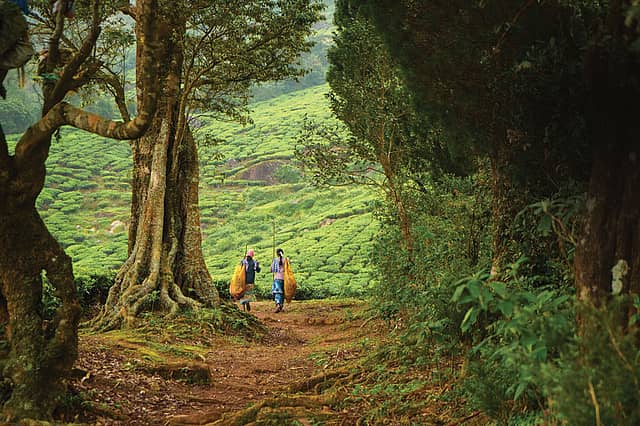
WHAT IS AGRI-TOURISM?
An amalgamation of agriculture and tourism, agri-tourism or agro-tourism is a practice developed on a working farm to attract visitors. For the farmer agri-tourism is an additional source of income and attracts tourists to rural areas. For tourists, agri-tourism connects them with the heritage, natural resources and culinary experiences of a region.
For example, Naveen Krishnan, a farmer from Trichy, made his mark in the field of agri-tourism by setting up Naveen Garden in Musiri, Trichy District. It is an integrated farm which has been turned into an agri-tourism hub. Visitors can register for classes on agriculture, goat rearing, poultry, beekeeping, pet training, vegetable farming, and tree planting.
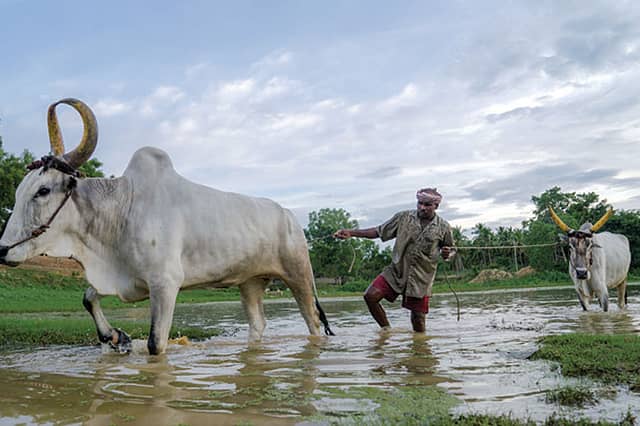
Farm experiences come in many shapes. At the culinary retreat at Kinara Farm Stay in the heart of Pollachi, a Le Cordon Bleu-trained chef introduces you to the flavours of Kongu cuisine. Set in a vibrant kitchen garden, this is an oasis of calm created by Harshini D close to the Uthukuli region.
Some can be done as day trips. The fertile village of Nallichery, 14 kilometres north of Thanjavur, offers an interesting agricultural tour. Over a guided tour of five hours, you can visit this simple village, a true representation of Indian culture and heritage. The recent surge of interest in farm tourism can be attributed in part to the pandemic. When people started travelling again after months of lockdown, they opted for more laidback holidays in rustic surroundings. The demand among travellers now is for places to commune with nature while staying remotely connected to their offices in wifi-enabled 'anti-resorts' in villages.
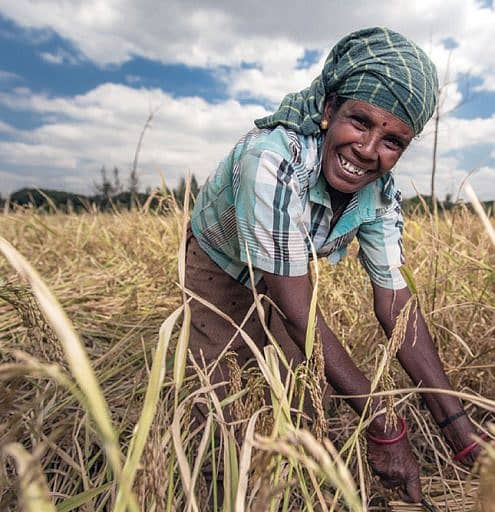
AGRI-TOURISM'S AMAZING POTENTIAL
The benefits of agri-tourism are manifold. It can help diversify the agri-business thereby reducing the risk associated with weather vagaries, price fluctuations, etc. It increases farmers' incomes, and protects them against income fluctuations. It provides employment to rural youth. Indeed, village tourism is the new mantra for alternative tourism development. Given Tamil Nadu's ancient culture, heritage, arts, crafts, and visual landscape, the state is well poised to harness its potential. Some areas have been identified by Tamil Nadu Tourism to develop their rural tourism potential on a trial basis:
KADAMBADI: The village has a beautiful lake with boating facilities and offers refreshing Ayurvedic or Siddha massage.
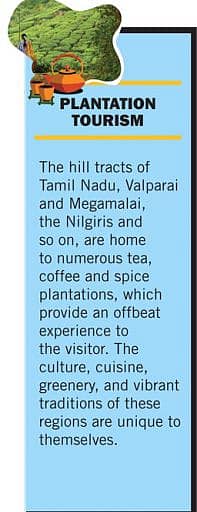
THANDARAI: It is an Irula tribal village, 50km south of Chennai, set in pristine natural surroundings.
KURANGANI: This village in the Western Ghats shows the spice tourism pattern, culture and natural attractions of Tamil Nadu.
CHETTINAD: The basic concern is the use of local material, style and skill in support of tourism here. Interested locals are eagerly offering homestays to visitors.
KAZHUGUMALAI: It is an archaeological site, with 8th-century Jain rock sculptures. You can find artificial reefs on boat rides about 50 minutes from the beach.
THIRUVIDAIMARUTHUR: The architectural and historical heritage of the Atalanathar Temple here attracts visitors along with its beautiful beauty.
THEERTHAMALAI: Theerthamalai is a pilgrimage centre located in Harur taluka of Dharmapuri district.
FARM EXPERIENCES IN TAMIL NADU
If you really think about it, each village in Tamil Nadu has immense tourism potential. Some have already relaised it to create some unique experiences. The experiences range from day visits to immersive long stays and some are also in close proximity to big cities like Chennai. What follows are a few examples, to whet your appetite, but there are many, many more.

Experiences range from day visits to immersive long stays with some in close proximity to big cities like Chennai. What follows are a few examples, but there are many, many more.
The Silk Farm in Yelagiri has beautiful mulberry plantations and provides insights into the process of making silk. Yelagiri is also a great spot for para-gliding. The well-maintained Government Herbal Farm is also in Yelagiri, where staff members explain the nuances and properties of herbal plants to all the visitors. The Jenis Grapes farm in Cumbum, which is right on the highway, has sprawling vineyards. More immersive is Farm Guru, 25 kilometres from Chennai, conceptualised for a generation of children who have no experience of the countryside. The Seetha Vanam Natural Farm in Coimbatore is great for a day visit. In Coonoor, you can go strawberry picking with Monkey Trails.
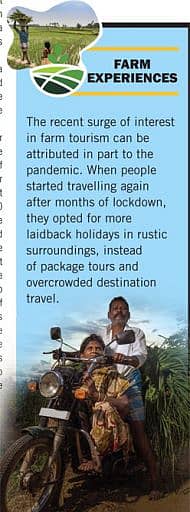
A more unconventional farm experience is the Amaravati Crocodile Farm in Tiruppur District, close to Amaravati Dam. The crocodile farm was established in 1976 for captive breeding of crocodiles to save them from extinction. Crocodiles of all sizes can be seen basking in the sun at the farm. Murugu Thottam is an organic eco-farm in Kancheepuram district, which offers a variety of eco-tourism and farm experiences. These include tractor rides, interacting with farm animals and so on. The Marutham Village Resort near Mahabalipuram offers holidaying in traditional cottages amidst paddy farms. Guests can try out their hand at farming, raising cattle, or simply walk through the farmlands and engage with nature! The croplands, classified as 'marutham' in ancient Tamil literatures is where the resort is situated in a village named Vadakadambadi on the Thirukazhukundram Road near Mahabalipuram. Marutham Resort is a refreshing experience, exposing guests to agriculture, traditional arts and games while on holiday. This is a truly immersive rural experience.
The pristine countryside of Tamil Nadu holds a lot of potential to allow an immersive experience for visitors. The numerous plantations in Tamil Nadu's hills have thousands of stories which can form a part of a traveller's memories. The farms and agricultural practices of rural areas also offer educational tourism where visitors can interact with farmers and obtain immersive learning. Rural Tamil Nadu is truly something worth experiencing.
(Website: www.tamilnadutourism.tn.gov.in; Social Media: @tntourismoffclFARM)
(A marketing initiative by Open Avenues)